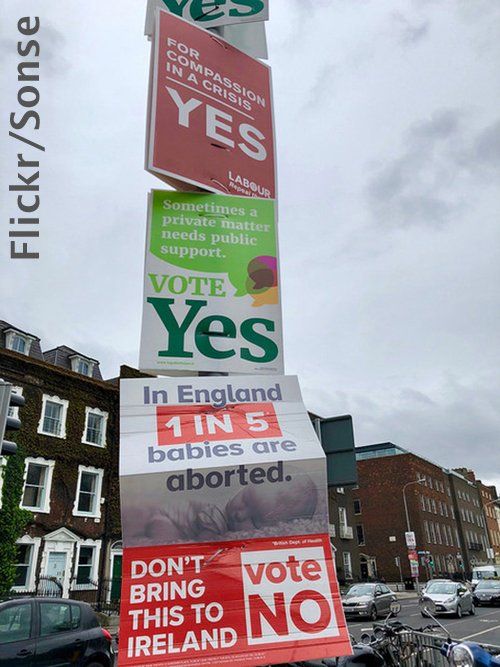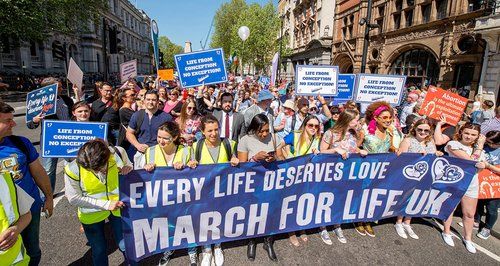
There have been two major developments regarding abortion in the north and south of Ireland. The UK Supreme Court rejected an attempt to liberalise the law banning abortion in Northern Ireland, but meanwhile the Republic of Ireland has voted in favour of legalising abortion in the south.
The result of the referendum in the Republic will add pressure to liberalise the law in the north. But the UK Supreme Court ruling will be welcomed by those who want to preserve the lives of unborn children in the province.
The case was brought to the UK Supreme Court by the Northern Ireland Human Rights Commission. But the court rejected their case, saying that the Commission had no standing to bring its legal challenge to the current law. However, some judges suggested that Northern Ireland’s abortions laws should be softened in some limited circumstances. But they accepted that the court had no basis for making that ruling.

In the Republic of Ireland a majority of voters backed a referendum to remove the 8th amendment of the country’s constitution. The 8th amendment had protected the lives of both mothers and unborn children. The Irish government says it will now introduce new legislation which will allow for access to abortion in the first twelve weeks of pregnancy on request, and in certain other circumstances from 12 to 24 weeks.
The focus has now turned to Northern Ireland which has a similar law to that in the Republic, generally prohibiting abortion but allowing it when continuing the pregnancy would put the mother’s life in physical or psychological danger. Research conducted by the ‘Both Lives Matter’ campaign, and upheld by the Advertising Standards Authority, show that an estimated 100,000 individuals are alive today who would not be if Northern Ireland had adopted the Abortion Act passed by the Westminster parliament in 1967.

Pro-abortion campaign groups are mobilising their supporters right across the UK to contact their MPs to ask them to press for a change in the law in Northern Ireland through the Westminster parliament. Christian groups are asking supporters across the UK to contact their MPs, asking them to respect the law, which the Northern Ireland Assembly voted not to change in any way as recently as 2016.
MPs held a passionate debate on the issue in the House of Commons on 5 June, with many female MPs speaking out to defend the lives of unborn children. The annual rally ‘March for Life UK’ took place in London on 5 May, and record numbers took part in the demonstration.






